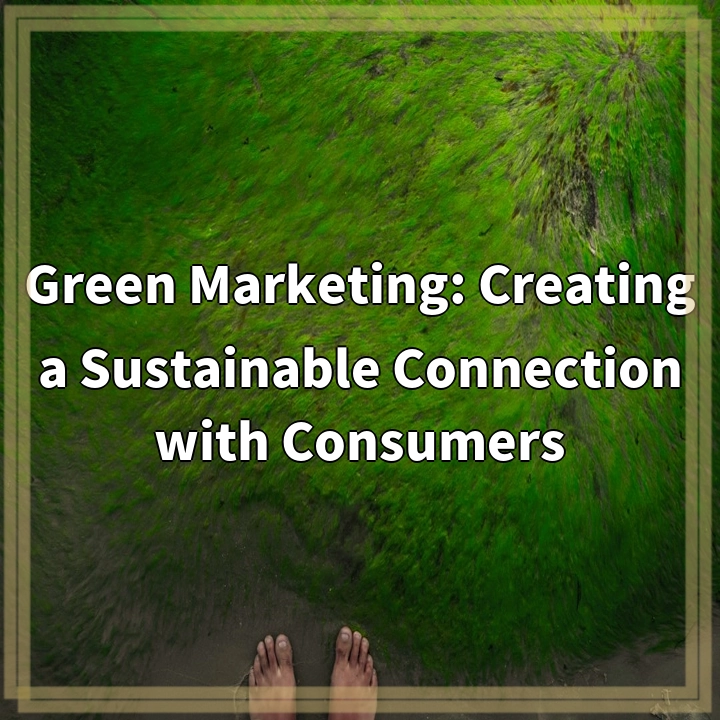
What is Green Marketing?
Green marketing refers to the practice of promoting products or services that are environmentally friendly and sustainable. It involves incorporating eco-friendly practices and values into various marketing strategies to appeal to consumers who prioritize sustainability and environmental consciousness.
Real-World Problems Associated with Green Marketing
Greenwashing
One of the major challenges in green marketing is the problem of greenwashing. Greenwashing occurs when companies falsely claim that their products or practices are environmentally friendly when they are not. This misleading marketing technique can confuse consumers and undermine their trust in genuine sustainable products or services.
Lack of Consumer Awareness
Another issue related to green marketing is the lack of consumer awareness and understanding. Many consumers may not be fully aware of the environmental impacts of their purchasing decisions or the significance of eco-labels and certifications. This can make it challenging for businesses to effectively communicate their green initiatives and differentiate themselves in the market.
Higher Costs
Implementing sustainable practices and developing environmentally friendly products can often result in higher production costs for businesses. This can make it difficult for companies to maintain competitive pricing, especially in markets where consumers prioritize low prices over sustainability. Balancing profitability and sustainability becomes a real concern for businesses adopting green marketing strategies.
Complex Supply Chains
Sourcing sustainable materials and ensuring ethical and environmentally responsible practices throughout the supply chain can be a challenging task. Green marketing requires businesses to align with suppliers who share their sustainability goals, which can sometimes be limited in availability or more costly. Managing and maintaining a complex and sustainable supply chain is an ongoing challenge for many companies.
Consumer Skepticism
Consumers are becoming increasingly skeptical of green marketing claims due to previous instances of greenwashing. This skepticism can make it harder for businesses with genuine green initiatives to gain the trust and loyalty of consumers. It highlights the importance of transparency and authenticity in green marketing efforts.
Changing Consumer Preferences
Consumer preferences can shift quickly, making it challenging for companies to keep pace with evolving sustainability trends. Changing consumer preferences and priorities may require businesses to continuously adapt their green marketing strategies to stay relevant and appealing to customers.
Overall, while green marketing offers significant opportunities for businesses to contribute to sustainability and engage with environmentally conscious consumers, it also presents several real-world problems that need to be navigated carefully. By understanding and addressing these challenges, companies can create a more sustainable connection with consumers and foster positive environmental change.

Solutions for Green Marketing Challenges
Authenticity and Transparency
To combat greenwashing and build trust with consumers, businesses should prioritize authenticity and transparency in their green marketing efforts. Clearly communicate and provide evidence of sustainable practices, environmental certifications, and the actual environmental benefits of products or services.
Consumer Education
Increasing consumer awareness and understanding of green marketing can help bridge the gap between businesses and their environmentally conscious target audience. Educate consumers about the importance of eco-labels, sustainable purchasing choices, and the positive impact they can make through their buying decisions.
Cost-Effective Sustainability
Developing sustainable practices and products while keeping costs manageable is crucial. Emphasize the long-term cost-saving benefits of sustainable choices, highlight government incentives or subsidies available for green initiatives, and find creative solutions to reduce production costs without compromising sustainability.
Supply Chain Collaboration
Collaborate closely with suppliers to ensure a sustainable and ethical supply chain. Encourage and support suppliers in adopting sustainable practices to minimize environmental impact. Foster long-term partnerships with suppliers who share the same commitment to sustainability.
Bolstering Trust
To overcome consumer skepticism, businesses should focus on building trust and credibility. Utilize third-party certifications and eco-labels to demonstrate the authenticity of green claims. Share success stories and testimonials from satisfied customers to showcase the positive impact of your sustainable practices.
Continuous Adaptation
Recognize that consumer preferences and sustainability trends are constantly evolving. Stay proactive in monitoring market demands and adjusting green marketing strategies accordingly. Stay informed about emerging sustainable technologies and incorporate them into your offerings to meet changing consumer expectations.
By implementing these solutions and actively addressing the challenges associated with green marketing, businesses can establish a stronger, more sustainable connection with consumers and contribute to positive environmental change.















